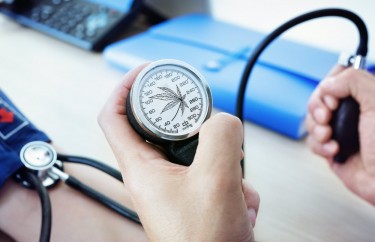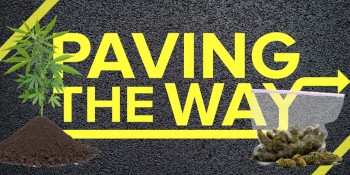Exploring the many advantages of cannabis. It seems that the plant could potentially help in reducing blood pressure levels.
The journal, Nature: Scientific Reports recently released a study examining over 91,000 subjects. The study concluded that current and lifetime cannabis consumption is associated with reduced blood pressure levels. The research indicates that this finding applies to all users, with a more significant impact on females.
French researcher Alexandre Vallée led a study entitled "Association between cannabis use and blood pressure levels according to comorbidities and socioeconomic status." The study acknowledges the contradictory findings on the cardiovascular risks associated with cannabis usage. Vallée also points out the narrow population scope of prior research and the scarcity of studies examining the impact of cannabis on cardiovascular health between genders.
Examining the Relationship between Cannabis and Blood Pressure
The investigation drew on information from the U.K. Biobank. This initiative collects data from many adults to study, prevent, diagnose, and treat chronic ailments, including cardiovascular diseases.
This research involved recruiting 156,959 volunteers from the U.K. Biobank, who had provided information regarding their cannabis usage and undergone blood pressure measurements. The study excluded 65,798 individuals due to incomplete data and unclassified variables.
Individuals on antihypertensive or antidepressant medication and a history of previous cardiovascular occurrences were also excluded. The remaining participants, whose data was utilized in the study, comprised a diverse range of individuals with varying cannabis consumption patterns and blood pressure levels.
At the assessment center, participants' systolic and diastolic blood pressure were measured twice through either an automated blood pressure device or manual measurement. If the automated method fails, they often use a sphygmomanometer, inflatable cuff, and stethoscope. The study employed a rigorous approach to ensuring the accuracy and reliability of the data collected.
{Systolic blood pressure signifies the pressure exerted on the arteries during heartbeats. Diastolic blood pressure indicates the pressure when the heart rests between beats.}
The research utilized a self-reported questionnaire to document participants' cannabis usage, enquiring about their cumulative lifetime consumption. Those who reported never using cannabis were classified as the control group, whereas those who disclosed any usage, even a long time ago, were considered cannabis users. This approach facilitated the distinction between users and non-users, enabling the researchers to draw accurate conclusions from the data.
The study employed various questions to differentiate between cannabis users, including frequency of usage and the time of their last cannabis consumption. This classification process involved segregating users into specific categories based on their level of consumption, such as daily users, weekly but not daily users, monthly but not weekly users, and those who consumed cannabis less than once a month.
The researchers further grouped users into subcategories based on their current or former status of cannabis usage. This method enabled a more detailed analysis of cannabis users and their potential impact on blood pressure.
No straightforward answers.
According to the researcher, previous studies have indicated a more robust correlation between cannabis usage and systolic blood pressure rather than diastolic blood pressure. However, the connection between cannabis and blood pressure remains ambiguous, with no clear consensus established.
The study highlights the potential influence of cannabinoid content, among other factors. Recent research has revealed that CBD could lower blood pressure and induce vasorelaxation in arteries. Similarly, THC has also been linked with vasorelaxation, but its effects on blood vessels vary based on whether they are central or peripheral arteries, with inconsistent findings across studies.
As per the study, stopping cannabis use suddenly was linked to increased blood pressure. The study also found that alcohol consumption may influence the relationship between cannabis use and systolic blood pressure. However, further research is needed to thoroughly understand the pharmacokinetic interactions between the two.
The study's applicability was limited to middle-aged U.K. subjects, making it difficult to extrapolate the findings to other age groups or ethnicities. Additionally, the study did not capture information on cannabis usage within the 30 days before the survey, making it difficult to distinguish between short-term and long-term associations between cannabis and blood pressure. The study also did not measure the THC or CBD levels or explore the various consumption methods.
Although several unanswered questions remain regarding the relationship between cannabis and blood pressure, the study's extensive sample size of the U.K. Biobank cohort was a significant advantage.
However, the slight differences in blood pressure observed between heavy cannabis users and never users, as well as current cannabis users and never users, are too insignificant to implement cannabis-blood pressure policies in clinical settings. As a result, further longitudinal studies are required in general populations and hypertensive patients to explore the potential of cannabis for medical use in lowering blood pressure.
Conclusion
After careful consideration of the study on cannabis use and blood pressure, it is clear that the relationship between the two is complex and multifaceted. While some evidence suggests that cannabis use may be associated with lower blood pressure, particularly among women and heavy users, other factors such as age, ethnicity, and alcohol consumption may also play a role. Furthermore, the potential cardiovascular risks associated with cannabis use cannot be ignored, especially in individuals with pre-existing conditions or who use other medications.
Despite the inconclusive nature of the current research, one thing is sure: the study of cannabis and its effects on the human body is still in its early stages, and much is to be learned. As more states and countries legalize cannabis for medical and recreational use, we must continue conducting rigorous scientific research to better understand its potential benefits and risks.
Ultimately, the study on cannabis and blood pressure serves as a reminder that there are often no easy answers to complex health issues. As we continue to explore the potential benefits and risks of cannabis use, we must do so with an open mind, a critical eye, and a commitment to scientific rigor and compassion for all who may be affected.








